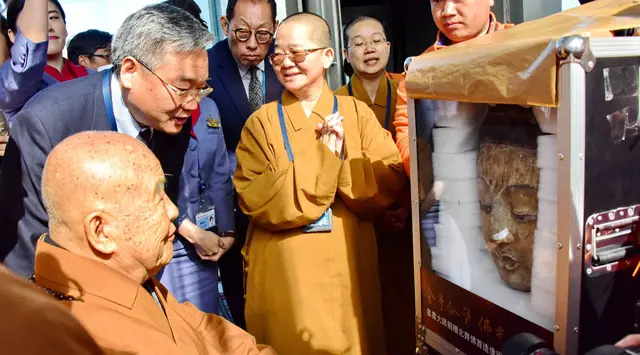Spain's central government said Monday that Catalan President Carles Puigdemont had not clarified whether or not he declared independence, urging him to do so "clearly" by Thursday at 10:00 am (0800 GMT).
"The government regrets that the president of the Catalan government has decided not to respond to the request made by the government," Deputy Prime Minister Soraya Saenz de Santamaria told a news conference, adding "what was asked and what we are asking for is clarity."
Earlier on Monday, in a letter to Spain’s Prime Minister Mariano Rajoy, Catalan President Carles Puigdemont failed to provide a clear answer to whether he had declared Catalonia’s independence last week.
Catalan President Carles Puigdemont failed to provide a clear answer on Monday. /Reuters Photo
Puigdemont’s inability to give a “yes” or “no” answer could pave the way for the central government to rule the autonomous region directly.
Rajoy previously had given the Catalan leader a deadline to clarify his position before 0800 GMT on Monday, and until Thursday to change his mind if he insists on a split, and said Madrid would suspend Catalonia's autonomy if he chooses independence.
"Our offer for dialogue is sincere and honest. During the next two months, our main objective is to have this dialogue and that all international, Spanish and Catalan institutions and personalities that have expressed the willingness to open a way for dialogue can explore it," Puigdemont said in the letter.
People hold up signs as they attend a pro-union demonstration organised by the Catalan Civil Society organisation in Barcelona, Spain, October 8, 2017. /Reuters Photo
"This way, we will verify the commitment of each of the parties to find an agreed solution."
Spain's Prime Minister Office could not immediately confirm whether the letter had been received and declined any further comment, while Spain's Justice Minister says the response is not valid.
A declaration of independence would trigger Article 155 of the 1978 constitution, under which the government in Madrid can impose direct rule on any of Spain's 17 autonomous communities if they break the law.
The central government can then sack the local administration and install a new governing team, take control of the police and finances, and call for a snap election.
The Catalan government says 90 percent of Catalans voted for a breakaway in the referendum.
But most opponents of independence boycotted it, reducing turnout to around 43 percent.
Catalan police chief Josep Lluis Trapero was due to appear before Spain's High Court on Monday to be questioned over whether his force, the Mossos d'Esquadra, deliberately failed to enforce the court ban on the independence referendum.
Josep Lluis Trapero, the head of Catalan police, walks past National Police officers as he leaves the Spain's High Court after testifying for the alleged crime of sedition in relation to arrests of high-ranking officials over the organisation of a banned independence vote in Madrid, Spain, October 6, 2017. /Reuters Photo
Trapero has been put under formal investigation for sedition after failing to order to rescue Civil Guard police who were trapped inside a Catalan government building in Barcelona by tens of thousands of pro-independence protesters.
The heads of civic groups Asamblea Nacional Catalana and Omnium will also testify over their role in organizing those protests.
(AFP&REUTERS)
 简体中文
简体中文

